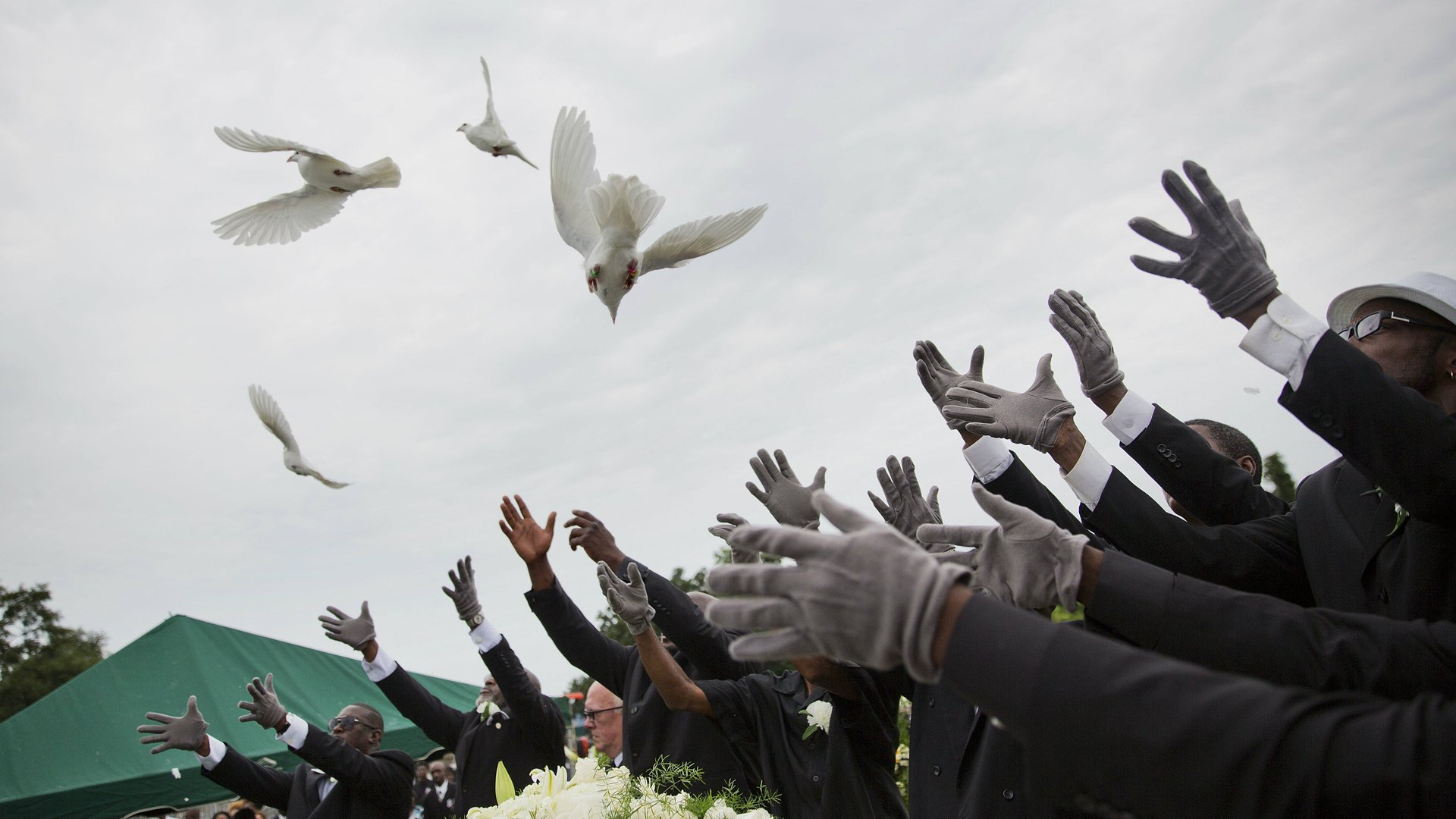Public forgiveness is a crucial step toward collective healing in the US
In June, the mourning members of Charleston’s Emanuel African Episcopal Church achieved an improbable, nearly impossible thing: forgiveness. “You hurt me. You hurt a lot of people. But I forgive you,” one of the bereft families’ representatives told alleged murderer Dylan Roof in court. A few days ago, Samuel Dubose’s mother did the same, expressing an almost immediate willingness to forgive the officer who fatally shot her son during a routine traffic stop in Cincinnati.


In June, the mourning members of Charleston’s Emanuel African Episcopal Church achieved an improbable, nearly impossible thing: forgiveness. “You hurt me. You hurt a lot of people. But I forgive you,” one of the bereft families’ representatives told alleged murderer Dylan Roof in court. A few days ago, Samuel Dubose’s mother did the same, expressing an almost immediate willingness to forgive the officer who fatally shot her son during a routine traffic stop in Cincinnati.
To express an emotion that is grounded in love is difficult, especially in a society steeped in violence, revenge, and self-absorption. But amid some of this year’s greatest injustices, a few individuals have nonetheless held strong. It’s a lesson worth noting.
“Forgiveness is the fragrance that the violet sheds on the heel that has crushed it,” runs the aphorism often attributed to Mark Twain. Forgiveness is the near-impossible act of giving up the resentment that naturally results from being wronged. It requires superhuman strength and has great healing potential for both victims and society generally, yet modernity does not much value it.
Instead, at our worst, we delight in schadenfreude, the pleasure derived from another’s misfortune. Children in particular have been raised to see the 21st-century world as a zero sum game, resulting in a paucity of generous “fellow-feeling” toward others. In several recent studies, Millennials (those aged 18 to 34) seemed uninterested in adhering to traditional ethical standards like honor, loyalty and a respect for authority. Since the 1960s, according to researchers, parenting goals have shifted toward promoting children’s happiness and “stoking their ambitions for material success.”
Yet this shift in emphasis is not necessarily in keeping with our own biology; evolutionary biologists suggest that humans are hard-wired toward altruism. When altruism is nurtured, we are rewarded with communal benefits. But when community is de-emphasized and the individual is exalted, morality is reduced to a mere set of rules, rules that often degenerate into a burdensome social code with questionable value. When a culture places greater emphasis on the individual than the whole, there is less reason to forgive.
One need only look to recent examples of moral exemplars to observe the profound benefits of forgiveness, however. Take the story of WWII veteran Louie Zamperini—the American POW who endured years of brutal abuse at the hands of his Japanese captors but, amazingly, came to understand that the only way to unshackle himself from his demons was to forgive his sadistic prison guard. How Zamperini was able to transcend the human emotions of revenge, anger and depression is, in his case, traced to a life-changing religious conversion. Entering into a state of forgiveness was, for him, transforming and redemptive.
Forgiveness is often misunderstood as an absolution of the act that was perpetrated, but that is not the goal. Rather, the point of forgiveness is to release the victim from the continued emotions of hatred, revenge, spite, and victimization.
Forgiveness is a way to let go of the anger and begin the healing. Such a release may not result in a healed relationship between victim and perpetrator, especially in cases of sexual assault, violence and other seemingly unforgivable acts. It does not preclude prosecution, or punishment. But it does help shape the justice process with emotional detachment, and keeps the victim from entering into the world of the perpetrator: hate, and all of its soul-crushing manifestations.
The world is in desperate need of kindness, civility and forgiveness. How can it become that way? The Dubose family, like the congregants in Charleston, have opened the door to a conversation about how to model behaviors that are conducive to democratic unity and social cohesion.
Moral development does not occur in a vacuum, it is a habitual process of doing the right thing for the right reasons, over and over again. In other words, it takes learning. As the writer Bernard Meltzer once stated, “When you forgive, you in no way change the past—but you sure do change the future.”
Because we all fail, we all seek re-entry into the fold one way or another. When we are forgiven, and when we forgive, we share in the continual process of self-renewal and rebirth. Society is made whole and resilient, and that is the quest for philosophers, theologians and politicians alike.